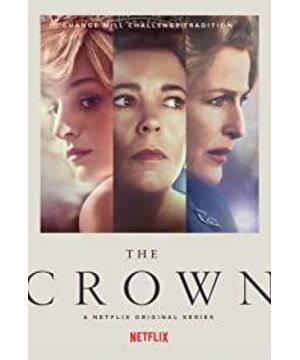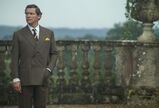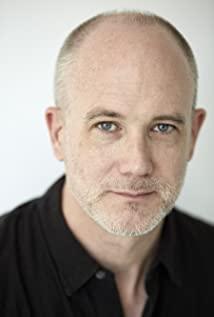Everyone probably knows how the history can be photographed so movingly. The narration style is eloquent and smooth, the ingenious editing and interludes, the condensed lines, the shots that are good at capturing details and emotions, the sensual and magnificent composition, the veteran acting skills and thorough understanding of the actors, and the just right narrative rhythm , the classical and subtle soundtrack and the 100% rigorous restoration of historical scenes all show the crew's respect for history.
This drama allows us to see the flesh-and-blood woman under the crown, and the helplessness, embarrassment, compromise and predicament behind the queen's brilliance and dignity. After World War II, Britain was twilight, the cabinet and church were conservative and stubborn, the prime minister was old-fashioned, and the royal family collapsed. As a wife, the queen hesitates between the freedom of her husband and the rules of the royal family; as a sister, she mediates between the commitment between sisters and the dogma of religion and the dignity of the royal family; as an individual, she struggles between self and moderation. She has been willful and individual, but she chooses to compromise and choose the absolute victory of kingship under the conflicts and contradictions again and again. She can march down a dozen streets under the hot sun, with facial muscle spasms from smiling too long; in countless boring interviews and day-to-day copybooks, her character has become calm and absolute. The neutrality of the empire bears the dignity and glory of the empire. Her life was very unhappy, her sisters turned against each other, and her husband and wife had different dreams, but the light of the crown covered the chicken feathers in this place, and the person sitting on the throne could only be honorable and noble.
View more about The Crown reviews











